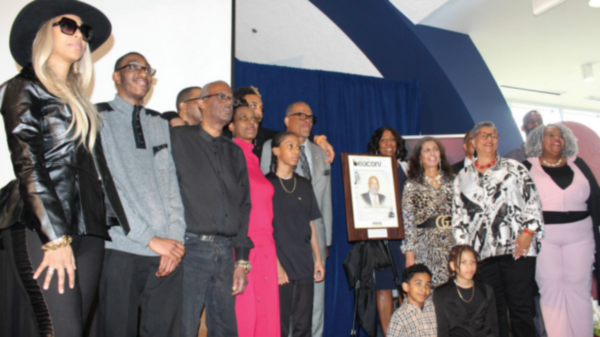Whenever I have had the responsibility during the past six decades to weigh in on a vital civil rights issue on behalf of Black America and other communities of color throughout the United States, I have not hesitated to speak out. Now is the time to publicly address the urgent issue of equal access, diversity, equity, and inclusion of Black-owned media in our nation’s communications industry.
In this era of the global digitalization of media and other high technological innovations in the communications industry, Black-owned and other minority-owned media cannot afford to be denied access to the rapidly evolving industry innovations.
The issue today is that Black-owned radio stations and other minority-owned media businesses should be permitted by the Federal Communications Commission (FCC) to compete fairly and equitably with large television and cable stations that geotarget audiences across America.
The National Newspaper Publishers Association (NNPA) has a strategic alliance with the National Organization of Black-Owned Broadcasters (NABOB) and with the Multicultural Media, Telecom & Internet Council (MMTC). We are all working together to ensure that the FCC will approve a rulemaking change that will enable minority-owned radio stations to engage in geotargeting of content to their audiences. This change is necessary because the FCC’s antiquated rules, written forty years ago, don’t give radio stations the chance to compete in the current media environment.
The FCC has as its mission to regulate “interstate and international communications by radio, television, wire, satellite, and cable in all 50 states, the District of Columbia and U.S. territories.” The proposed rulemaking change will substantially increase the access to geotargeting by minority-owned radio stations and other minority-owned businesses that is so vital and effective in today’s global and national media marketplace.
This is another crucial national civil rights issue. This is an issue of Diversity, Equity and Inclusion (DEI). Last month I wrote to the FCC to stress this point. I emphasized, “I have spent much of my career as a civil rights leader focused on ensuring that technological developments like the one at issue in this proceeding, lift all of America, and not just some of us. Too often, I have seen the benefits of technological development accrue to the privileged, with little or no benefit to disadvantaged communities, including some with which I work on a daily basis.”
I concluded in the letter to the FCC: “Geotargeting technology would give minority-owned broadcasters an enhanced ability to compete with the larger station groups…The technology would enable them to better serve their communities with localized content. In addition, for those broadcasters that choose to use this technology, since it is voluntary, they can give minority-owned businesses an affordable outlet for their messages. In short, I now believe that
this technology is beneficial to minority communities, including radio broadcasters, small businesses, and the public they serve.”
We recall that President Joe Biden announced, “On my first day in office, I signed Executive Order 13985 (Advancing Racial Equity and Support for Underserved Communities Through the Federal Government), which established that affirmatively advancing equity, civil rights, racial justice, and equal opportunity is the responsibility of the whole of our Government.”
We commend the Biden-Harris Administration thus far in its first year striving to move the nation forward on equity and diversity matters even during the persistence of the COVID-19 pandemic and the epidemic of partisan politicization of issues and supporting public policies that will improve and enhance the quality for life of all Americans. On this issue of media reform, we hope and resolutely call for the FCC in 2022 to be aligned fully with the official stated commitments of the Biden-Harris Administration to ensure fairness, equity and diversity.
The proposed FCC rulemaking change is also supported overwhelmingly by all of the major national civil rights organizations including the NAACP, National Urban League, National Action Network, National Council of Negro Women, National Coalition on Black Civic Participation, National Congress of Black Women, Hispanic Federation, National Hispanic Caucus of State Legislators, U.S Black Chambers, and many more.
The time for the FCC to act and to approve the proposed rulemaking change submitted is now because it will help to empower all minority-owned radio and other media businesses.
Millions of Americans, particularly from underserved communities, deserve and have a fundamental civil right to have access and to be included.
Dr. Benjamin F. Chavis Jr, is President and CEO of the National Newspaper Publishers Association (NNPA) and Executive Producer/Host of The Chavis Chronicles (TCC) on PBS Television Stations across the nation. He can be reached at dr.bchavis@nnpa.org.

You must be logged in to post a comment Login